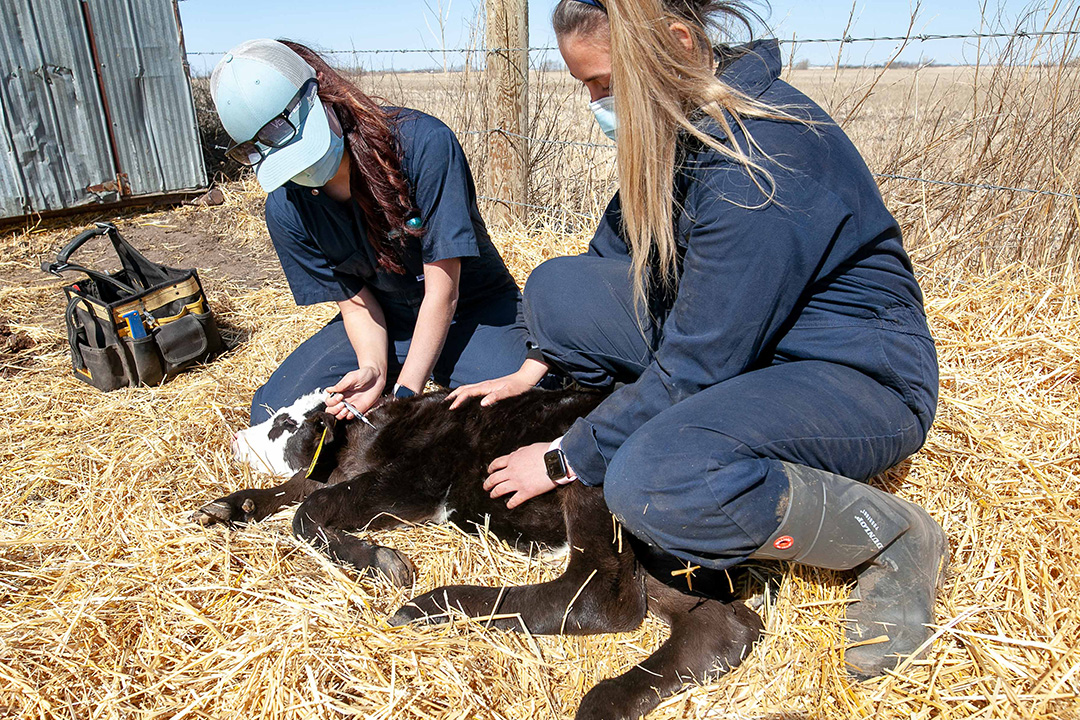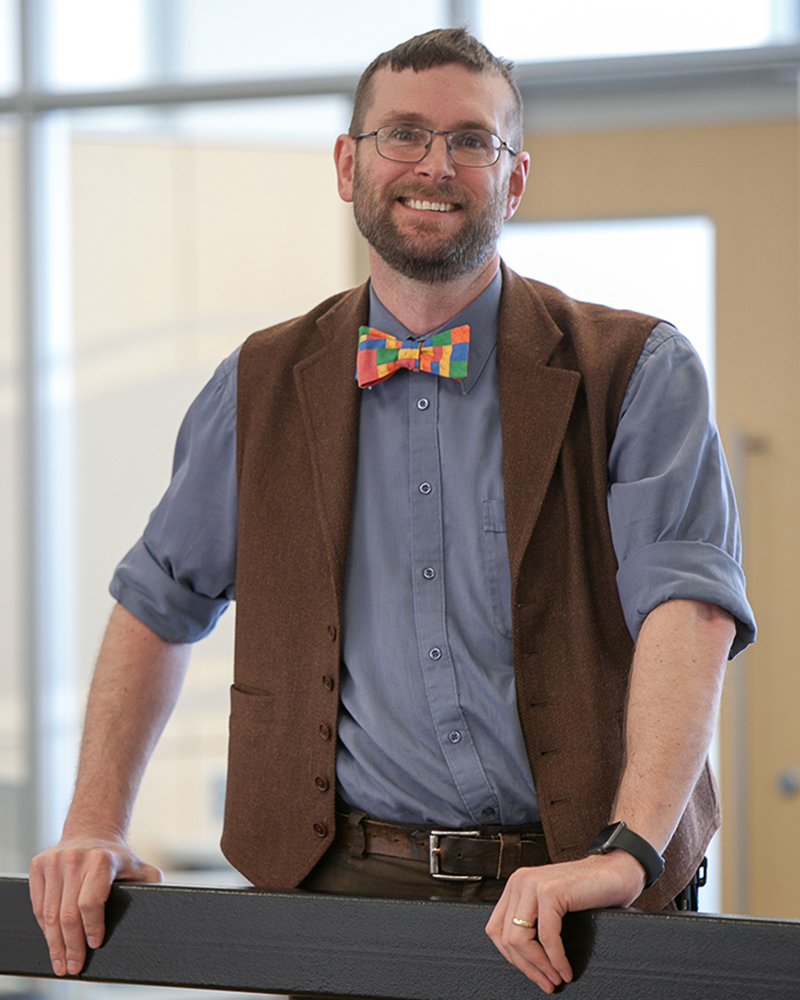
Veterinarians' feedback vital for maintaining curriculum
A series of annual surveys helps the Western College of Veterinary Medicine (WCVM) take regular inventory of how well the college’s Doctor of Veterinary Medicine (DVM) program is serving veterinary students and graduates of the program.
By Nykole King
“I believe we have a great program, I really do. But there's always room for improvement. So, these surveys, in their very nature, are looking backwards, not forwards,” says Dr. Chris Clark, the WCVM’s associate dean (academic). “We want information about how we’ve done in the past.”
The WCVM annually conducts the surveys with graduates of the DVM program — one survey as the students finish the last few months of their program and another survey two years after they graduate. Using the survey’s responses as a guide, the college can see how well its program serves its students and meets the needs of the veterinary profession.
“We’re always looking for really good evidence of how well we’re doing and what we can do to improve. So, any one survey by itself can’t force immediate change, but the more information we have, the better because we want this school to have one of the best programs that it could possibly have,” says Clark.
The WCVM has conducted the two-year follow-up survey nine times during the past decade, and results from these surveys provide the college with valuable information about any preferences for program changes.
The surveys also provide the college with more information about where their graduates are practising or working, and how satisfied they are with their current jobs.
The most recent survey reported results from members of the Class of 2017, who gave feedback about their level of satisfaction in the DVM program and how well the WCVM prepared them for their veterinary careers.
As Clark explains, respondents can rate the value of their WCVM education — but through the lens of veterinarians who have been working out in the profession for two years.
“So they’re able to look at what they do on a day-to-day basis and then look back at their time in vet school and help us identify how well we prepared them for their careers,” says Clark.
While the graduates’ feedback is valued by the WCVM’s leadership team, Clark says the curriculum needs to be a balance between the needs of general practice and specialized care.
Overall, the survey results found that all 41 respondents felt their veterinary education at the WCVM prepared them for a veterinary career with 44 per cent reporting that they felt prepared and 58 per cent that felt somewhat prepared. In satisfaction with the program, 98 per cent reported that they were satisfied or very satisfied.
In this most recent survey, one point highlighted by several respondents was the need for more practical training with hands-on experience — a critical addition in the WCVM’s renewed DVM curriculum.
Introduced in the 2020-21 academic year, the new curriculum has increased the hours of clinical skills from 10 hours to 70 hours during the first year.
“We've introduced this clinical skills course program that started in year one and it’s going to continue through year two and … year three,” says Clark. “I think we've really tried to address that [concern].”
Clark explains that the survey also helps the college gauge where their graduates end up: whether they work predominantly with small animals or large animals and in an urban or rural setting, as well as in which province, region or country they work and live.
Most of the 2017 WCVM graduates currently work in British Columbia, followed by Alberta, Saskatchewan and Manitoba, respectively. However, the proportion of graduates working in the Prairie provinces waxes and wanes depending on the year, points out Clark.
Once the college collects the survey feedback, Clark says he compiles it into a data table with previous years to examine the changes over time. From there, the information is brought to the WCVM dean’s group, the executive committee and the teachers’ committee so that it can inform decision-making processes at the college.
“We want to be looking at our faculty for ideas about what to do in the future. We're also looking at our colleagues in other schools. We’re looking at what people know about education in general to try to always have the curriculum moving forward,” says Clark.
Although the WCVM is in the process of curriculum renewal, Clark says that doesn’t mean the college’s leadership team stops listening to or asking for feedback.
“What you want is a curriculum that really is evergreen — where you’re always, always working on it, improving on it, and checking on it,” says Clark.
He compares curriculum renewal with house maintenance that needs to be done regularly.
“You need to do something every year,” says Clark. “If you don't do anything for 10 years, it's a mess. And suddenly, it’s incredible work to clean everything up.”
